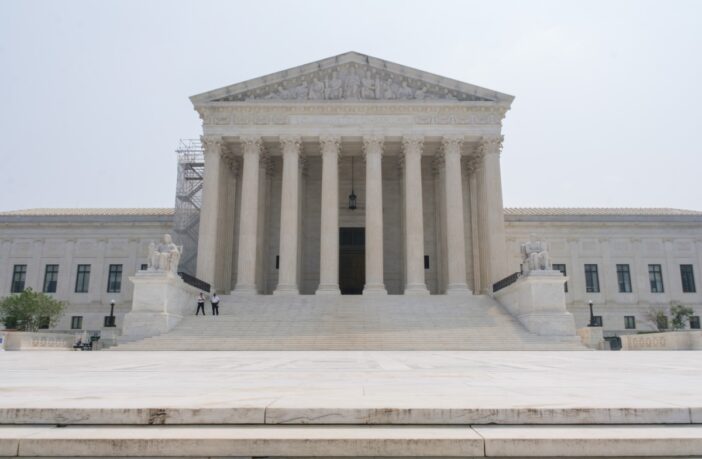The Supreme Court issued a ruling that could lead to skyrocketing phone bills, soaring healthcare costs, and dismantling regulations on safe food and consumer protections that have been in place for decades. The Court has consigned to history the 1984 ruling known as Chevron v. Natural Resources Defense Council, potentially jeopardizing the safety and rights of consumers and the environment.
In a 6-3 decision, the conservative majority of the court dealt another blow to the power of federal agencies.
In writing for the majority, Chief Justice John Roberts declared, “Chevron is overruled. Courts must exercise their independent judgment in deciding whether an agency has acted within its statutory authority.”
Liberal Justice Elena Kagan, in her dissent, warned that a “longstanding precedent at the crux of administrative governance thus falls victim to a bald assertion of judicial authority.”
At the time of its decision, Chevron was a victory for the Reagan administration’s deregulatory agenda, granting judges the ability to defer to federal agencies in interpreting ambiguous statutes. The flexibility allowed Democratic and Republican presidents to implement new regulations across various issues. However, many Republicans have increasingly criticized Chevron, arguing it gives too much power to agency bureaucrats. Environmental activists and other groups on the left have defended Chevron for its ability to address issues like climate change.
The case that led to this ruling involved a challenge to a federal regulation requiring fishing vessel operators to fund data collection for fishery conservation and management. The National Marine Fisheries Service, which oversees ocean resources, issued a rule in 2020 mandating vessel operators pay up to $710 a day for independent observers to monitor operations.
Small owner-operators argued this cost was burdensome, challenging the service’s authority under the 1976 Magnuson-Stevens Fishery Conservation and Management Act. The lower courts had ruled in favor of the federal government.
The Trump administration has supported a campaign by the conservative justices to limit the power of federal agencies, and this decision is the most recent in that series. The court’s conservative majority, including three Trump appointees—Justices Neil Gorsuch, Brett Kavanaugh, and Amy Coney Barrett—has repeatedly struck down agency actions lacking explicit congressional authorization, following the “major questions doctrine.”
Former acting Solicitor General Neal Katyal sounded the alarm in a NBC News interview, stating, “The Supreme Court has done an extraordinary thing, an extraordinarily dangerous thing. Most government regulation in this country is not done by Congress. It’s done by administrative agencies… What the Supreme Court did today by a 6–3 vote is overturned Chevron. That is going to make it much more difficult to regulate businesses, to protect consumers, to protect the environment, and to protect our healthcare.”
The political dynamic behind the ruling reflects the decreasing productivity of Congress due to partisan divides, leading to a greater reliance on agency rules to achieve regulatory goals, particularly by Democratic presidents.
The 1984 Chevron precedent, which called for judicial deference to federal agency interpretations of ambiguous laws, has been a target of conservatives and business interests for years. With the ruling, the Supreme Court has dramatically shifted the landscape of American governance, with opponents arguing that it potentially jeopardizes decades of consumer and environmental protections and ushered in a new era of regulatory challenges.
Katyal emphasized the sweeping impact of the ruling, noting that regulations by agencies like the EPA, FDA, and FCC, which influence everything from environmental standards to food safety and phone bill costs, will now face greater challenges. He warned, “This decision… is going to change government as we know it.”



